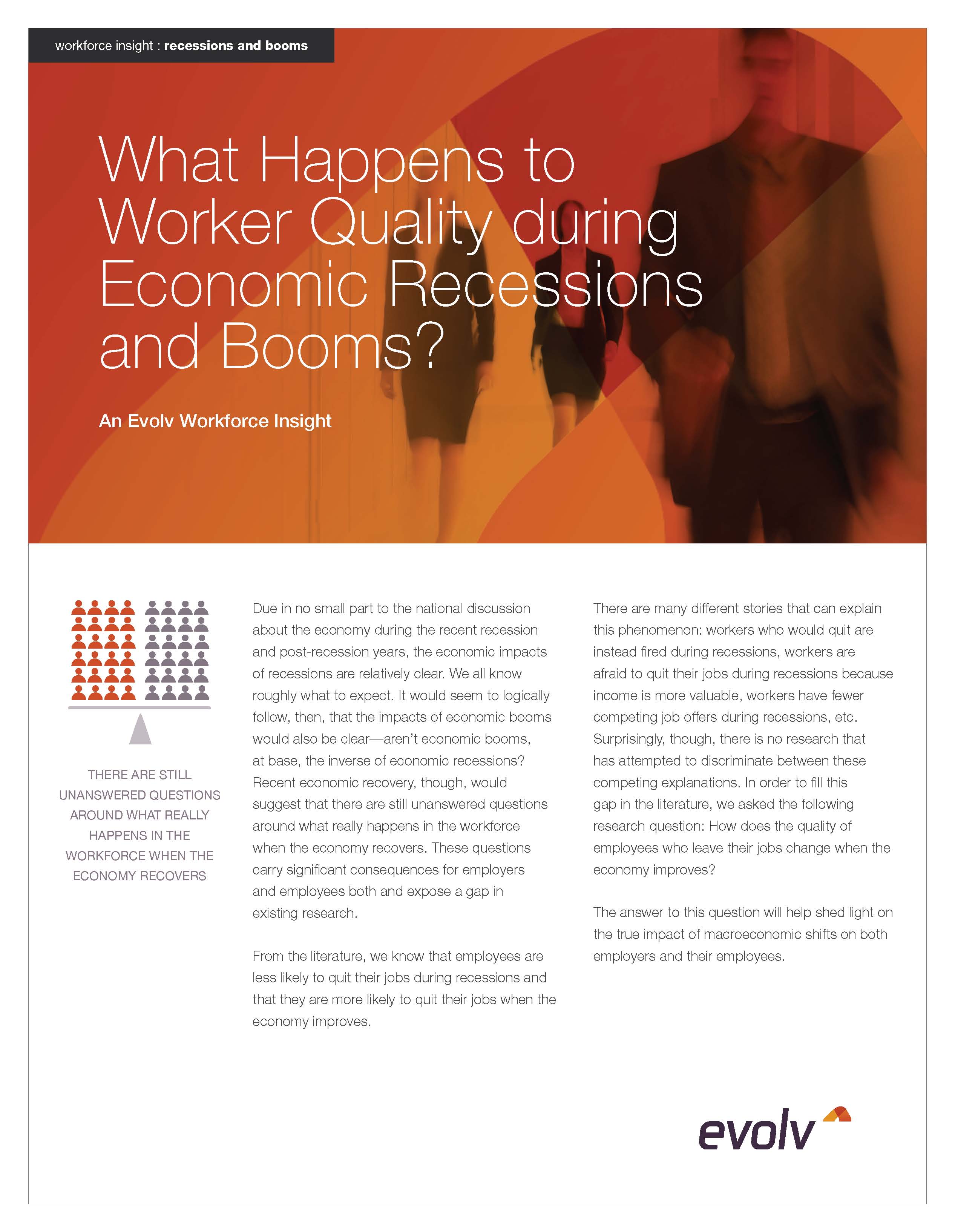What Happens to Worker Quality During Economic Recessions and Booms?

Citation: Housman M. What Happens to Worker Quality During Economic Recessions and Booms?, San Francisco, CA: Evolv, Inc., 2014.
Abstract: From the literature, we know that employees are less likely to quit their jobs during recessions and that they are more likely to quit their jobs when the economy improves. But there is very little that has been written about the quality of employees who change jobs during economic boom and bust cycles. In order to fill this gap in the literature, we asked the following research question: How does the quality of employees who leave their jobs change when the economy improves?
In order to answer this question, we compiled data on the tenure and performance of US-based employees engaged in frontline service positions from 2011 to 2014, which yielded a sample of more than 40,000 employees and over 6.5 million performance observations. Applying a variety of econometric techniques, we found that unemployment rates do correlate with shifts in the composition of job changers: a one-point increase in the unemployment rate is associated with a 1.8% percent increase in the productivity of a worker. These results provide further evidence to support the notion that workers who change jobs during recessions are higher performers than workers who change jobs when the economy improves. Given that this is the case, firms may wish to be a bit more selective when the economy improves in order to avoid making the wrong hire.
